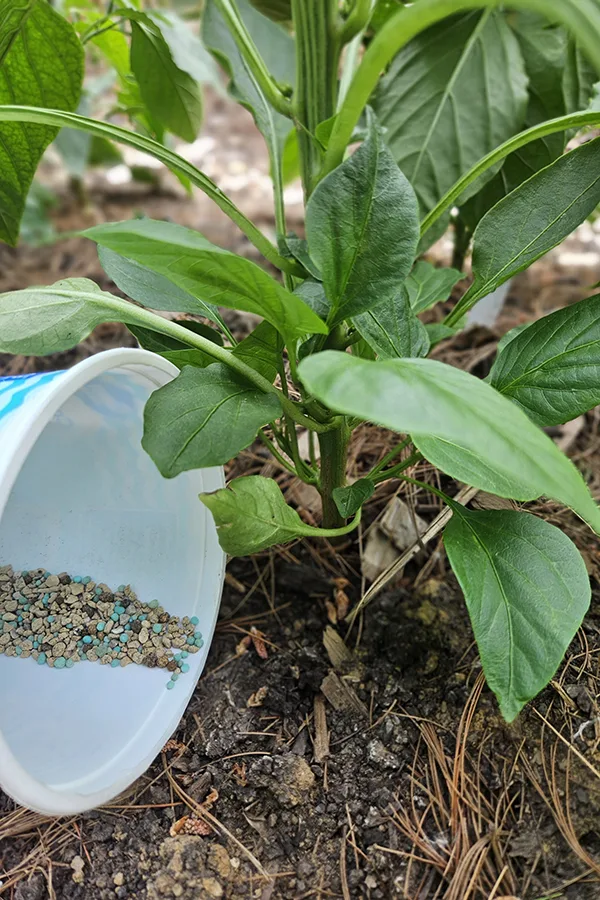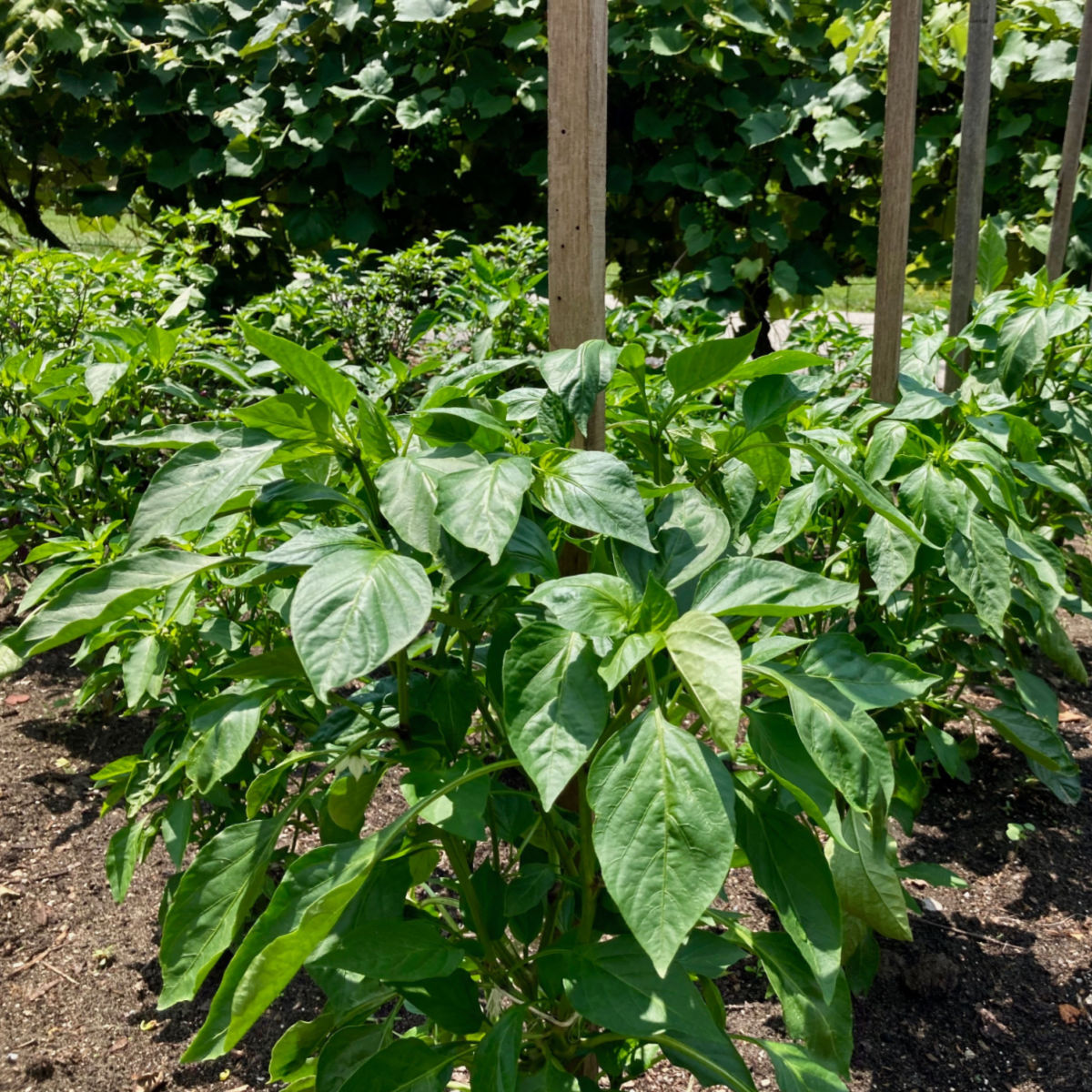Best Fertilizers for Peppers: Enhance Development and Flavor with Our Leading Picks
Best Fertilizers for Peppers: Enhance Development and Flavor with Our Leading Picks
Blog Article
Organic Vs. Synthetic Fertilizers: Which Is Best for Nurturing Healthy Pepper Plants?
In the realm of supporting healthy pepper plants, the choice in between organic and artificial fertilizers stands as a crucial choice with significant effects. While both options purpose to provide vital nutrients to sustain plant development, the nuances of their effect on the dirt, plant wellness, and the setting spark a discussion that echoes throughout the horticulture area. Comprehending the distinctive advantages and prospective pitfalls of each fertilizer kind is crucial for pepper growers looking for to optimize their returns while preserving an eco-conscious and sustainable strategy.
Benefits of Organic Fertilizers
Organic fertilizers use an environmentally-friendly and sustainable strategy to beneficial pepper plants, supplying important nutrients without the usage of synthetic chemicals. These all-natural fertilizers are originated from natural resources such as compost, manure, bone dish, and algae, advertising dirt health and wellness and biodiversity. Unlike synthetic plant foods, organic alternatives release nutrients slowly, making certain a well balanced and stable supply for pepper plants to flourish.
One substantial benefit of organic fertilizers is their ability to improve soil framework and water retention. By enhancing soil health, organic plant foods promote valuable microbial task, which assists in nutrient uptake by pepper plants. Additionally, organic fertilizers decrease the threat of chemical run-off, protecting water sources from contamination and safeguarding the setting.
Additionally, natural plant foods add to long-term dirt fertility by advertising the development of advantageous dirt microorganisms. These organisms help break down natural issue, launching nutrients in a type that is quickly obtainable to pepper plants. best fertilizers for peppers. By promoting a healthy dirt community, organic fertilizers sustain lasting pepper growing practices that profit both plants and the environment
Drawbacks of Synthetic Plant Foods
Artificial fertilizers, in comparison to their natural equivalents, present different disadvantages when made use of to nurture pepper plants, affecting both plant wellness and ecological sustainability. One major disadvantage of synthetic fertilizers is their tendency to leach nutrients from the dirt quickly. This rapid leaching can result in nutrient inequalities in the soil, triggering plants to struggle with shortages or toxicities. Furthermore, synthetic fertilizers can harm advantageous soil microorganisms, such as earthworms and valuable microorganisms, interfering with the soil ecological community's balance.
Moreover, the overuse of artificial plant foods can add to water pollution. Excess fertilizers not taken in by plants can wash away into water bodies, bring about eutrophication, where algae flowers diminish oxygen levels in the water, harming marine life. In addition, artificial plant foods are typically obtained from non-renewable resources, such as nonrenewable fuel sources, adding to carbon emissions and ecological degradation during their manufacturing.
Nutrient Absorption Comparison
Efficient nutrient absorption plays an important function in the general health and wellness and development of pepper plants. When contrasting organic and artificial plant foods in terms of nutrient absorption, organic plant foods have the advantage of providing a more balanced and slow-release source of nutrients (best fertilizers for peppers). Organic fertilizers consist of a variety of macro and trace elements that are not only useful for the plants however additionally advertise healthy soil microbial activity, which helps in nutrient uptake. On the other hand, artificial plant foods usually offer a quick release of nutrients, which can lead to leaching and overflow, leading to their website lower nutrient absorption rates by the plants.
Additionally, natural plant foods improve dirt structure and water retention ability, enabling pepper plants to accessibility nutrients extra efficiently. This enhanced soil quality helps with root advancement, making it possible for far better nutrient absorption. Artificial plant foods, although initially boosting plant growth because of their high nutrient concentrations, might prevent long-term nutrient absorption by degrading soil health and wellness with time.
Environmental Impact Factors To Consider

On the other hand, artificial fertilizers, although usually even more focused and quickly available to plants, can have detrimental impacts on the environment otherwise applied appropriately (best fertilizers for peppers). Their production requires high energy inputs, causing greenhouse gas discharges and adding to climate change. Additionally, the drainage of excess artificial plant foods can contaminate water sources, bring about eutrophication and harming water communities.
Best Plant Food Practices for Peppers
When fertilizing pepper plants, maximizing nutrient uptake and decreasing environmental influence are essential considerations. To accomplish this, it is vital to adhere to Get More Information best fertilizer practices tailored to the specific needs of pepper plants. One crucial practice is to execute a soil test prior to using any kind of fertilizers. This test can establish the pH level of the dirt and recognize any nutrient shortages, assisting you in choosing the most ideal fertilizer solution.
An additional important technique is to feed pepper plants at the correct time. Generally, peppers benefit from receiving plant food at planting and then again when they begin to flower. Over-fertilizing can cause nutrition imbalances and hurt the plants, so it is vital to adhere to recommended application rates.
Additionally, selecting a balanced fertilizer with an NPK proportion that suits pepper plants' demands is essential. Eventually, incorporating organic and artificial fertilizers carefully can help nurture healthy and balanced pepper plants while decreasing ecological influence.
Verdict

Organic plant foods use an environmentally-friendly and lasting technique to beneficial pepper plants, providing necessary nutrients without the use of synthetic chemicals. Unlike synthetic fertilizers, natural options release nutrients gradually, making sure a consistent and balanced supply for pepper plants to prosper.
Artificial fertilizers, in comparison to their organic counterparts, position different disadvantages when utilized to nourish pepper plants, affecting both plant health and ecological sustainability. When contrasting natural and synthetic fertilizers in terms of nutrient absorption, natural plant foods have the advantage of giving a much more well balanced and slow-release source of nutrients.Furthermore, natural fertilizers boost dirt framework and water retention ability, permitting pepper plants to access nutrients a lot more successfully.
Report this page